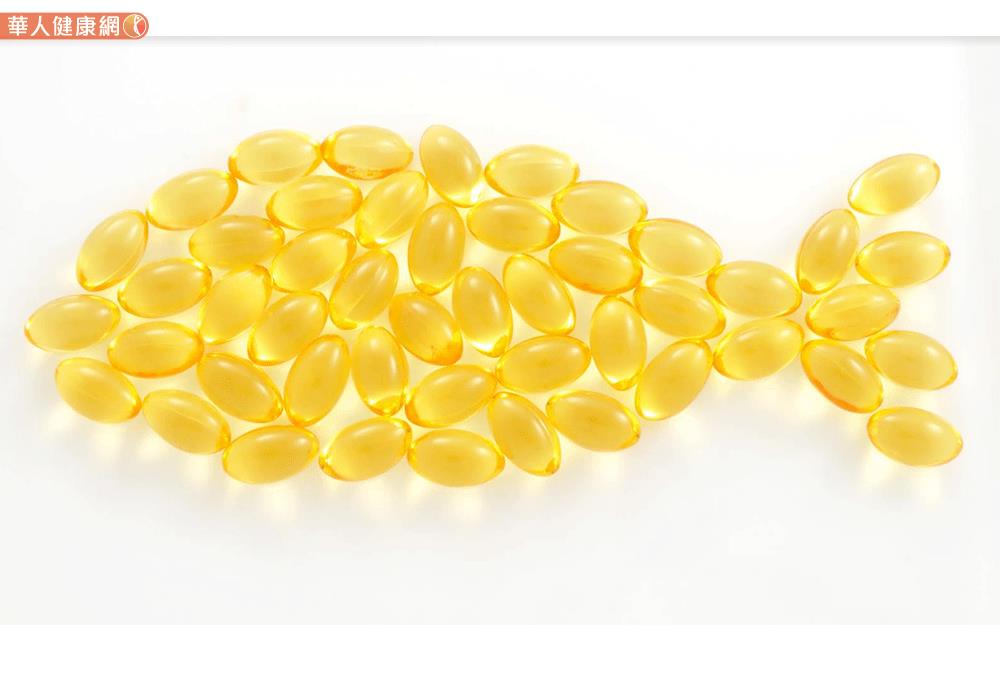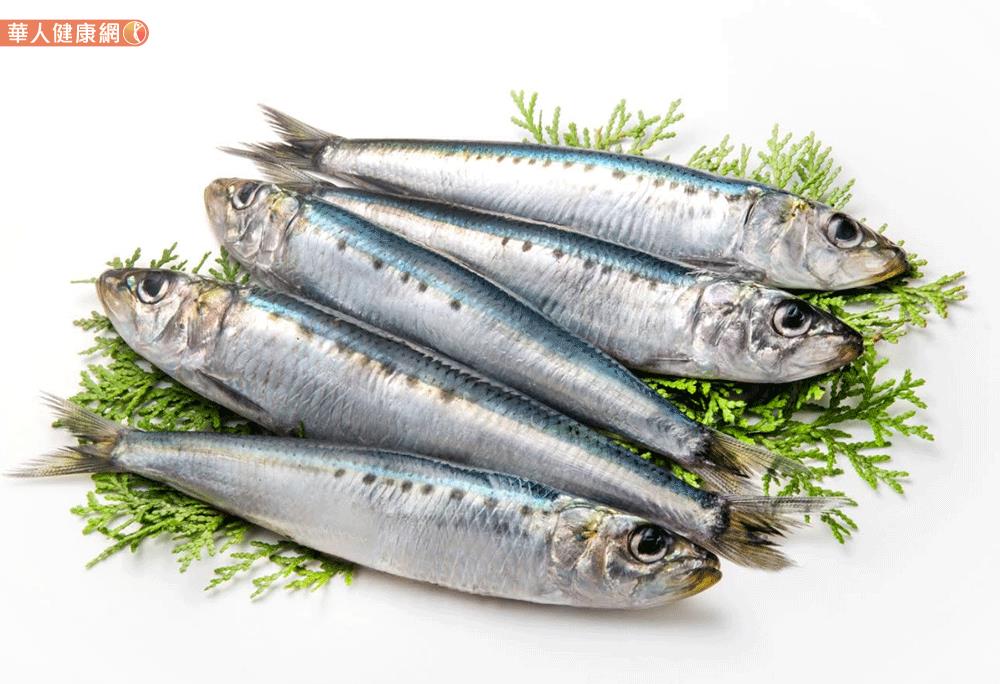
Omega-3与Omega-6不失衡 应该维持1:1 ~1:4
远离发炎、维持健康,除了要适度补充Omega-3 脂肪酸之外,最容易忽略的一个核心问题是:人体内Omega-3与Omega-6应该维持适当正确比例。比例应该为 1:1 ~1:4,维持此良好比例非常重要。但是,现今许多人因饮食失衡,往往Omega-3: Omega-6的比例却变成 1: 17~1: 20以上(注10)。
由于现代人饮食西化、经常在外饮食,导致饮食不均衡,一不小心大量摄取大豆油、葵花油、玉米油、肉类脂肪、谷物种子(富含碳水化合物与Omega-6脂肪酸) ,导致摄取的Omega-6 比例增加,而Omega-3 比例却降低,也就是Omega-3与Omega-6的比例失衡。一旦Omega-3 (EPA、DHA等)摄取量下降而omega-6 脂肪酸过多时,会衍生出促进身体发炎前列腺素与血栓素,让身体长期处于隐性发炎状态(注9),会增加慢性病发生机率,包括:心血管疾病、糖尿病、肥胖、皮肤炎、自体免疫疾病、类风湿性关节炎、气喘与忧郁症,以及癌症等风险(注6)。
低Omega-3摄取量增加慢性病发生机率 甚至有死亡风险
此外,低Omega-3摄取量也恐提高死亡率。根据研究发现,美国2009年因EPA、DHA等Omega-3摄取不足而死亡的人数高达84,000例(注11)。还有,牛津大学也有一项研究发现,英国7岁以上的学童,在Omega-3脂肪酸的摄取量不足,会影响阅读能力(注12)。Omega-3中的EPA主要是抗发炎,对于心血管疾病、三高、关节发炎有缓解好处(注5&注10&注13);而DHA则是在于神经再生,有助改善认知功能、提升记忆及专注力等(注14)。事实上,需要补充Omega-3的对象包括:孕哺妇、儿童及学生,其次为上班族、银发族等。
高浓度的Omega-3鱼油,DHA、EPA含量高
究竟每日应摄取多少含量的EPA、DHA 才足够呢?根据国际权威机构GOED每日EPA/DHA建议摄取量:成人每天应补充 EPA/DHA达500mg以上,其中哺乳妇或心血管疾病患者,每日EPA+DHA摄取量更应达到700~1,000mg(注15)。目前已有高浓度的Omega-3鱼油,一粒Omega-3纯度为65~85%,且DHA、EPA含量高,只需少量服用即可获取所需补充量。
★【Omega-3鱼油小教室】:
Omega-3鱼油浓度应该怎么看?在挑选时需辨识所吃的鱼油产品,到底所含的Omega-3 鱼油含量与浓度,各是多少?市售一般鱼油仅做脱臭、去胶、去蜡的简单处理,仍有蛮大比例是造成身体负担的饱和脂肪酸为主,其中精华成分的EPA/DHA仅占18%、12%,但是,经过特殊技术浓缩萃取后,只含高单位Omega-3,不含饱和脂肪酸,Omega-3 (EPA、DHA等)浓度达到 > 65~80%,EPA/DHA甚至可达到70%~90%,有助于肠道吸收。
研究发现,摄取足量Omega-3浓度80%以上的鱼油,在降低三酸甘油脂、LDL、总胆固醇上,比Omega-3浓度62.5%的鱼油胜出4至5倍(注16)。所以,达到85%浓度的鱼油,相当于要从12 公斤鱼油提炼而得,十分珍贵。
聪明选择高浓度、优质、安全的Omega-3鱼油
除了选择高浓度之外,又该如何挑选优质、安全的Omega-3鱼油呢?最好经过科学实验证实,Omega-3 浓度80%以上的鱼油,以SCC超临界低温高压萃取,鱼油不易变质与降解,纯化高浓度Omega3,不使用有机溶剂与高温破坏生态。而且原料来源要使用纯净、安全,鱼油来源自远洋小型鱼种秘鲁鯷鱼及沙丁鱼,含有大量的油脂,稳定养殖且持续捕捞比较不会影响生态,也不会有大型鱼类常见的重金属累积问题。加上认明纯度良好的EPA、DHA ,让身体好吸收,以及符合 GOED 检验标准等,就是不错的选择。
(注1) Mohammad Tarek Kabbany, MD. Cardiovascular Diseases in Chronic
Inflammatory Disorders.2016
https://www.acc.org/latest-in-cardiology/articles/2016/07/15/10/04/cardiovascular-
diseases-in-chronic-inflammatory-disorders
(注2) Lisa M. Coussens. Inflammation and cancer. 2010 Jan 7.
https://www.ncbi.nlm.nih.gov/pmc/articles/PMC2803035/
(注3) https://technews.tw/2016/08/07/covert-inflammation-may-trigger-many-forms-of-cancer/
(注4) https://bit.ly/2Q8ROvQ
(注5) Susanna C Larsson. Dietary long-chain n−3 fatty acids for the prevention of cancer: a review of potential mechanisms. The American Journal of Clinical Nutrition, Volume 79, Issue 6, 1 June 2004, Pages 935–945,
https://academic.oup.com/ajcn/article/79/6/935/4690254
(注6):Russo GL.(2009). Dietary n-6 and n-3 polyunsaturated fatty acids: from biochemistry to clinical implications in cardiovascular prevention. Biochem Pharmacol. Mr 15;77(6):937-46.PMID:19022225
(注7): R. Crupi1.n-3 Fatty Acids: Role in Neurogenesis and Neuroplasticity. Institute of Pharmacology, School of Medicine, University of Messina, Policlinico Universitario, Torre Biologica 98123 Messina Italy; 2Dept of Life Sciences “M. Malpighi”, Section of General Physiology and Pharmacology, Universityof Messina, Viale F. Stagno D’Alcontres 31, 98166 Messina, Italy; 3 University of Manchester, UK
(注8) http://jtp.taiwan-pharma.org.tw/113/049-053.html
(注9) https://smallcollation.blogspot.com/2013/07/arachidonic-acid.html#gsc.tab=0
(注10) Artemis P. Simopoulos.An Increase in the Omega-6/Omega-3 Fatty Acid Ratio Increases the Risk for Obesity. Nutrients. 2016 Mar; 8(3): 128. 2016 Mar 2.
https://www.ncbi.nlm.nih.gov/pmc/articles/PMC4808858/
(注11) 调查报告网址: https://www.ncbi.nlm.nih.gov/pubmed/19399161Danaei G. The preventable causes of death in the United States: comparative risk assessment of dietary, lifestyle, and metabolic risk factors. PLoS Med. 2009 Apr 28;6(4):e1000058. doi: 10.1371/journal.pmed.1000058. Epub 2009 Apr 28.
(注12) Low blood long chain omega-3 fatty acids in UK children are associated with poor cognitive performance and behavior: a cross-sectional analysis from the DOLAB
study.https://www.ncbi.nlm.nih.gov/pubmed/23826114
(注13) Elham Rajaei.The Effect of Omega-3 Fatty Acids in Patients With Active Rheumatoid Arthritis Receiving DMARDs Therapy: Double-Blind Randomized Controlled Trial. Glob J Health Sci. 2016 Jul; 8(7): 18–25.Published online 2015 Nov 3. doi: 10.5539/gjhs.v8n7p18
https://www.ncbi.nlm.nih.gov/pmc/articles/PMC4965662/
(注14) Luchtman DW1. Cognitive enhancement by omega-3 fatty acids from child-hood to old age: findings from animal and clinical studies. Neuropharmacology. 2013 Jan;64:550-65. doi:10.1016/j.neuropharm.2012.07.019. Epub 2012 Jul 27.
(注15) http://goedomega3.com/index.php/intake-recommendations
(注16)M. Bryhn,The bioavailability and pharmacodynamics of different concentration of omega-3 acid ethyl esters..2006


 咖啡喝太多「火燒心」?中醫:防胃食道逆流,脾胃氣虛者必喝「四神湯」
咖啡喝太多「火燒心」?中醫:防胃食道逆流,脾胃氣虛者必喝「四神湯」
 防失智,吃對抗氧化營養素!地表最強抗氧化劑是它〜
防失智,吃對抗氧化營養素!地表最強抗氧化劑是它〜
 普洱茶消脂減肥〜中醫:加黑豆煮「黑纖體茶」代謝力大升級
普洱茶消脂減肥〜中醫:加黑豆煮「黑纖體茶」代謝力大升級
 春節圍爐要控糖護腎!醫揭:3大「護腎行動」搭配分期護腎對策
春節圍爐要控糖護腎!醫揭:3大「護腎行動」搭配分期護腎對策
 40歲壯男三條血管嚴重堵塞!醫籲:胸口壓迫感、呼吸困難,小心心肌梗塞發作
40歲壯男三條血管嚴重堵塞!醫籲:胸口壓迫感、呼吸困難,小心心肌梗塞發作
 過年出國掃貨瘦瘦針?FDA不良通報兩年暴增8倍!醫籲:小心5大風險
過年出國掃貨瘦瘦針?FDA不良通報兩年暴增8倍!醫籲:小心5大風險








 闽公网安备 35020302001899号
闽公网安备 35020302001899号
